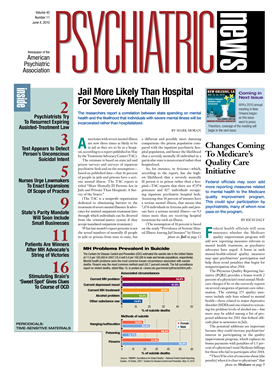Regulatory Briefs
• The Food and Drug Administration (FDA) approved a new formulation of controlled-release OxyContin that carries a lower risk for misuse and abuse than the currently marketed formulation, according to an announcement by the agency on April 5. The reformulation, manufactured by Purdue Pharma, is purported to be more resistant to cutting, crushing, or other methods intended to release a large amount of oxycodone for snorting or injection. Purdue Pharma agreed to conduct a postmarketing study to monitor adverse events associated with the new formulation as part of a Risk Evaluation and Mitigation Strategy required by the FDA.
• The FDA issued a complete response letter to Cephalon regarding the company's new drug application for the use of armodafinil to treat excessive sleepiness associated with jet-lag insomnia that often accompanies long eastbound flights, the company announced on March 29. The response letter raised questions about the drug's efficacy in a clinical trial the company used to support the application, in which the treatment group reported marginally better outcomes than did the placebo group. Armodafinil is an isomer of modafinil and is currently approved for treating excessive sleepiness associated with obstructive sleep apnea, shift-work disorder, or narcolepsy.
• The prescribing information for naltrexone extended-release injectable suspension was revised in March to include additional warnings and precautions regarding injection-site reactions and reversal of opioid blockade for pain management. A medication guide for patients is now required to be included in the prescribing information.
• The prescribing information for paliperidone extended-release tablets was revised in March with updated safety data from clinical trials and postmarketing reports related to extrapyramidal symptoms, angioedema, and other adverse reactions.
• Prescribing information for olanzapine for extended release injectable suspension was updated in April with additional clinical trial data on the risk of hyperprolactinemia.
• Prescribing information for lisdexamfetamine dimesylate capsules (brand name Vyvanse) was updated in April to include supplemental data from a new clinical trial, including the drug's efficacy at two hours through 14 hours after its administration for the treatment of adult attention-deficit/hyperactivity disorder (ADHD).
• Generic-drug manufacturer Mylan announced last month that the FDA has approved bupropion hydrochloride extended-release tablet 150 mg as the generic version of Zyban, indicated for smoking-cessation treatment.
Research Brief
•.
An intravenous immune globulin product manufactured by Baxter, known as Gammaguard, was more effective than placebo in slowing the progression of mild to moderate Alzheimer's disease in a small study, the company reported on April 14 at the American Academy of Neurology meeting in Toronto. In the double-blind, phase 2 clinical trial, patients with mild-to-moderate Alzheimer's who received immune globulin continuously for 18 months (n=14) showed significantly less cognitive decline, measured by the Alzheimer's Disease Assessment Scale–Cognitive Subscale (ADAS-Cog) score, than patients who received placebo for the first six months (n=6).
Twenty-four patients were initially randomized to receive either immune globulin (n=16) or placebo (n=8) through intravenous infusion for six months. After six months, the treatment group continued with the immune globulin infusion, while the placebo group received various doses of immune globulin.
Another measurement of overall function using the Alzheimer's Disease Cooperative Study–Clinical Global Impression of Change (ADCS-CGIC) rating scale also showed a result in favor of those treated with immune globulin. In addition, magnetic resonance imaging showed that patients who received continuous immune globulin infusion for 18 months had a lower rate of whole-brain atrophy and ventricular enlargement. Baxter is currently conducting a phase 3 trial of the treatment and plans to initiate a second phase 3 trial soon.
